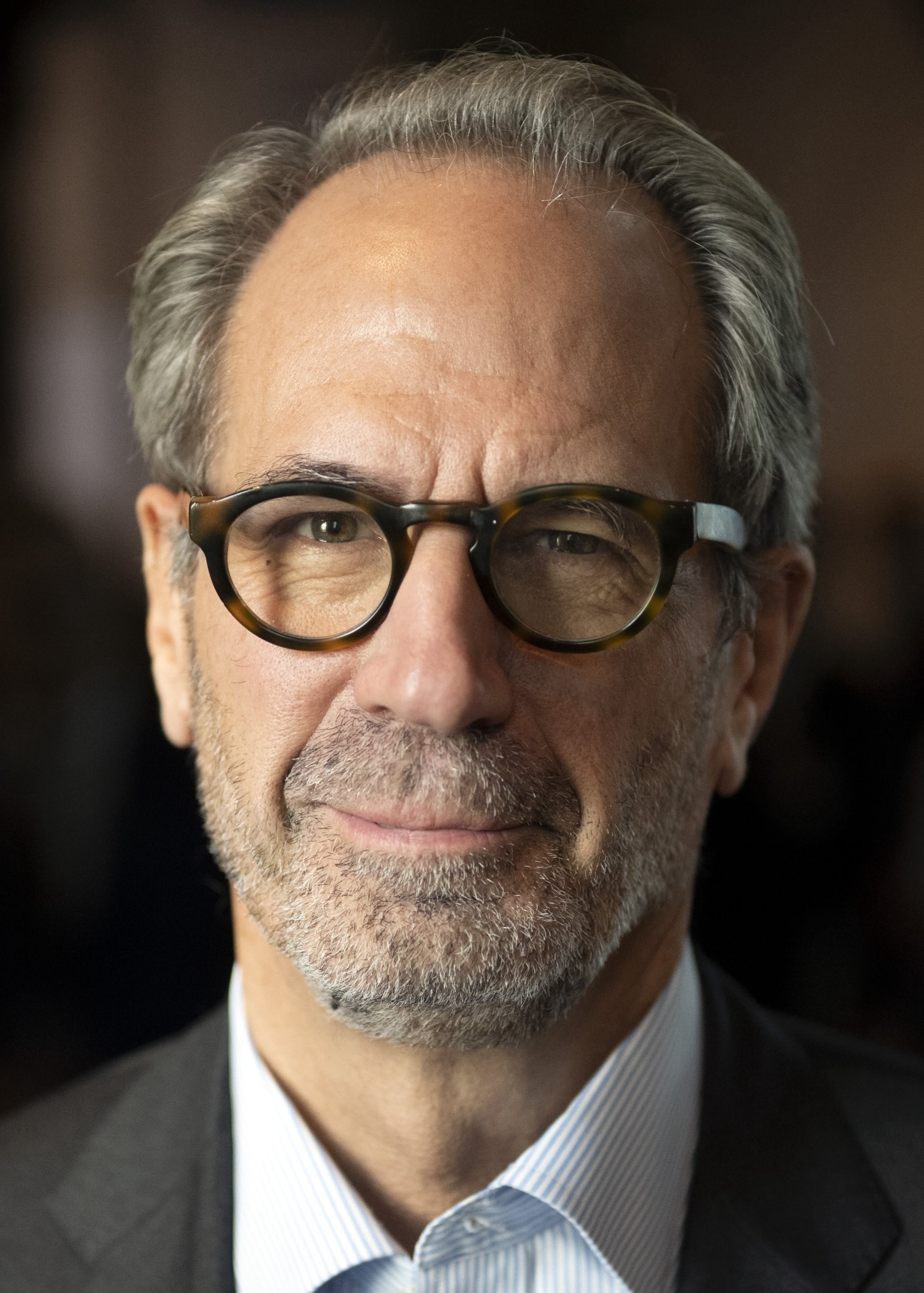How impact investors can support democracy to thrive
Nearly three-quarters of the global population now live in autocratic countries, according to data published in March by V-Dem Institute – up from just under half 20 years ago. Democracy is backsliding around the world, and an increasing number of heads of state are accused of undermining freedom of speech, key institutions and the rule of law, fuelled by increased political polarisation and a loss of trust in institutions.
Yet, organisations supporting it get the least attention from investors: a new report from Phenix Capital Group shows that, out of a database of 2,900 impact funds, only 40 target SDG16, which covers peace, justice and strong institutions.
In this context, could impact investors step up and invest in mission-driven enterprises dedicated to supporting a healthy democracy? Is there a solid investment case to invest in democracy?
This was the topic of the discussion held by European impact finance advisor, FASE, on 2 April, as part of its series of online ‘Impact Fire Talks’, which aim to bring together leading voices in impact investing to challenge conventional thinking and explore bold, actionable solutions.
 “We are really in the middle of a seminal moment in history,” says Patrice Schneider, chief strategy officer at the Media Development Investment Fund, which provides investment to independent media organisations in countries where access to reliable public interest information is under threat, who was speaking at the event.
“We are really in the middle of a seminal moment in history,” says Patrice Schneider, chief strategy officer at the Media Development Investment Fund, which provides investment to independent media organisations in countries where access to reliable public interest information is under threat, who was speaking at the event.
The trust in the concept of truth – “the basic cement of our societies in places like the US” – is sliding back to levels seen in autocratic countries such as Russia and China, he says.
The Media Development Investment Fund has been operating for 30 years, and Schneider, a former journalist, has worked with the organisation for over two decades. He describes it as a combination of a human rights organisation and an investment fund. It has invested US$325m in 154 companies in 49 countries that have a history of media oppression. Schneider’s participation in the Impact Fire Talk gave an illustration of an investor which is actively involved in supporting the democratic process – in this case through supporting independent media organisations.
Financial independence for media organisations – not having to depend upon billionaire owners or government funding – is essential to be editorially independent, he argues, and to provide voters with the knowledge they need to make informed decisions. But the traditional business model of the press – selling advertisement space in newspaper pages – has been shattered by the digital revolution, so innovative sources of capital need to be found, and this is where impact investing comes into play.
We are really in the middle of a seminal moment in history
“Public funding poses challenges, because we know that when the governments get involved in the media, it has an impact,” Schneider says. “We can’t only use the market because for 20 years the digital disruption has completely broken the business model of public interest information…. So it’s going to have to be a third way.”
He argues the provision of catalytic capital – investments that are ready to accept lower than market-rate returns – is what really makes the difference. The Media Development Investment Fund uses blended finance structures, which include layers of market-rate investments, concessionary capital and even grants to de-risk its investments in media organisations, from different sources including foundations, high net-worth individuals and corporates.
For the Media Development Investment Fund, the investment case is clear: it recognises the importance of independent information provided in the public interest, which makes it worthwhile providing capital to support it at a reduced monetary yield as an offset to the societal dividend: protecting independent media ecosystems, preserving critical thinking spaces, and maintaining fact-based public discourse channels.
- The second Impact Fire Talk takes place on 9 April, focusing on ‘Unlocking impact VCs’ full potential’. Book your free place now.
Combating hate speech through social enterprise
 Sara Egetemeyr (pictured), chief operating officer and co-founder of German social enterprise Penemue, also speaking at the event, shows how an investible, for-profit business model can support democracy. Penemue has developed software that uses AI to identify online hate speech, and sells it as a service to companies seeking to moderate online comments on their channels, and also as licenses to governments which then disseminate them for free to people who need it, like politicians or NGOs. It also works with the public prosecutor’s office in the German state of Niedersachsen (Lower Saxony) to identify hate speech that’s potentially illegal.
Sara Egetemeyr (pictured), chief operating officer and co-founder of German social enterprise Penemue, also speaking at the event, shows how an investible, for-profit business model can support democracy. Penemue has developed software that uses AI to identify online hate speech, and sells it as a service to companies seeking to moderate online comments on their channels, and also as licenses to governments which then disseminate them for free to people who need it, like politicians or NGOs. It also works with the public prosecutor’s office in the German state of Niedersachsen (Lower Saxony) to identify hate speech that’s potentially illegal.
Not moderating hate speech, Egetemeyr argues, can lead victims – often disadvantaged minority communities – to withdraw from public debate in fear of receiving abuse, potentially silencing entire groups of people and undermining freedom of expression. When journalists are targeted, this benefits disinformation campaigns that erode democracy too.
And it doesn’t end online, Egetemeyr explains. “If there is more violent language online, we also see increasing violence offline, which of course, is also a real threat to democracy.”
Especially if your case is protecting democracy, you need investors that also want to hold up that value
Egetemeyr says there’s a strong business case for operating Penemue as a for-profit company rather than being grant-reliant: beyond financial independence, being seen as an entrepreneur gives more credibility as a business partner. Raising large amounts of money – required to develop an expensive technology – and moving at speed in a competitive market are also easier as a private company, she says.
This is where impact investors come in: to avoid mission-drift, social enterprises need like-minded investors, Egetemeyr says. “Especially if your case is protecting democracy, you need investors that also want to hold up that value.”
Business can support democracy
Business can often be thought to have a negative impact on democratic institutions, points out Professor Sébastien Mena (pictured), chair of strategic management at Switzerland’s University of Fribourg, also a speaker at the event. Activities such as tax avoidance, blocking unionisation and human rights violations are all examples of this. But as a member of the Rebalance Project Mena focuses on how businesses can support democracy.
The research shows that business can have a potential for direct impact on democracy through the processes and products of the company, as well as indirectly through its internal practices and culture.
The first recommendation of the Rebalance research is for businesses to support democracy within their own organisations, through governance structures that encourage democratic participation and free exchange of ideas among workers – something that encourages employees to become more politically engaged in their personal lives, according to the Rebalance Project’s research.
Businesses can also have a positive impact on democracy in the way they interact with external stakeholders. For example, they might have businesses in their supply chains which are operating in undemocratic countries.
- Listen to our podcast with Ashoka's Marie Ringler: “People's sense of powerlessness is the greatest poison in the world”
In his view, investors can back two types of organisations to support democracy: social enterprises that directly support democratic institutions (like Penemue), and those businesses that engage in “democratic” work, both internally and with their external stakeholders. But, he points out, it isn’t easy for investors to identify the “democratic performance” of businesses, particularly those with complex supply chains.
In the face of current challenges to democracy, Schneider suggests taking the approach of what he calls “small islands of coherence”. A concept drawn from a quote by Nobel-prize winning chemist Ilya Prigongine, it is used to demonstrate that in a chaotic environment, small islands of coherence can change the whole system. Likewise, impact investors can support small entities that cumulatively can create systemic change, he says.
 Summing up the discussion, FASE investor relations manager Kai Wagner (pictured), the moderator of the session, urged the webinar audience – made up of professionals involved in the impact investment community – to defend democracy through their work. He said: “Democracy is a practice that needs action to be sustained and defended every day. We do all benefit from this institution and should continuously consider how we can support it, how we can strengthen it and how we can make sure that we are scaling its resilience.”
Summing up the discussion, FASE investor relations manager Kai Wagner (pictured), the moderator of the session, urged the webinar audience – made up of professionals involved in the impact investment community – to defend democracy through their work. He said: “Democracy is a practice that needs action to be sustained and defended every day. We do all benefit from this institution and should continuously consider how we can support it, how we can strengthen it and how we can make sure that we are scaling its resilience.”
Top image: Freepik. Portrait of Sara Egetemeyr credit Silvia Wolf.
This feature remains free to read thanks to the support of our partner, FASE. Find out more about our partnerships
|
|





